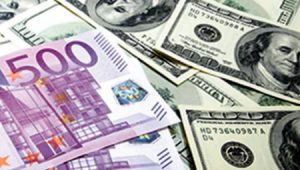 The Central Bank of Nigeria Reinstates Foreign Exchange Sales to Bureau De Change Operators at N1,021/$
The Central Bank of Nigeria Reinstates Foreign Exchange Sales to Bureau De Change Operators at N1,021/$
The Central Bank of Nigeria (CBN) has announced the resumption of dollar sales to Bureau De Change (BDC) operators, following a circular published on Tuesday. The circular, referenced TEM/FEM/PUB/001/013 and signed by Dr. Hassan Mahmud, Director of the Trade and Exchange Department, was made available on the CBN’s official website.
Under the new directive, the CBN will sell $10,000 to BDCs at a rate of N1,021 per dollar. Additionally, BDCs have been instructed to sell the currency with a maximum spread of 1.5 percent above the CBN’s rate. This revised rate signifies a decrease of 7.27 percent compared to the previous price, and it is expected to contribute to the strengthening of the local currency.
Previously, the apex bank sold $10,000 to BDCs at a rate of N1,101/$ and mandated BDCs to sell to eligible customers at a rate not exceeding 1.5 percent above the purchase price.
The recent move is in line with the CBN’s commitment to defending the naira, as previously stated by the bank. To facilitate the process, the CBN has directed all eligible BDCs to initiate naira deposits into designated CBN accounts starting from April 22, 2024. Furthermore, the operators are required to submit proof of payment and other relevant documents at the appropriate CBN branches for disbursement.
It is worth noting that Nigeria’s foreign exchange reserves have experienced a continuous decline, reaching a new low of $32.1 billion on April 18, 2024. Over the course of 31 days, the reserves decreased by $2.35 billion, dropping from $34.45 billion on March 18, 2024. However, during the International Monetary Fund/World Bank Spring Meetings, CBN Governor Olayemi Cardoso clarified that the bank would refrain from intervening in the exchange market unless unusual circumstances arise. He emphasized that the recent decline in reserves is unrelated to the defense of the naira.
The fluctuation in exchange rates remains a significant factor with potential implications for trade and economic stability. Monitoring the developments in the foreign exchange market will be crucial in assessing the impact on various sectors of the Nigerian economy.

